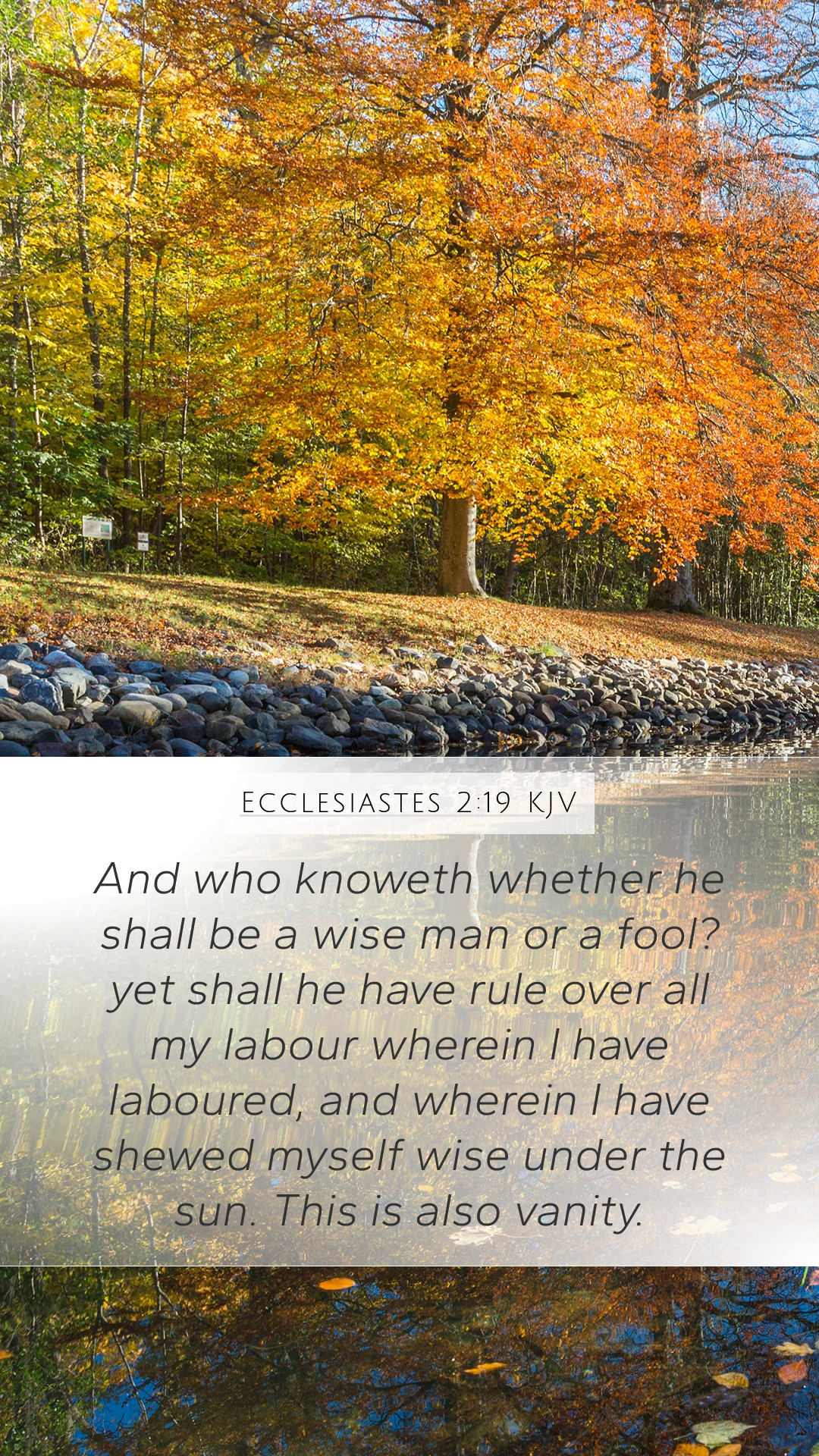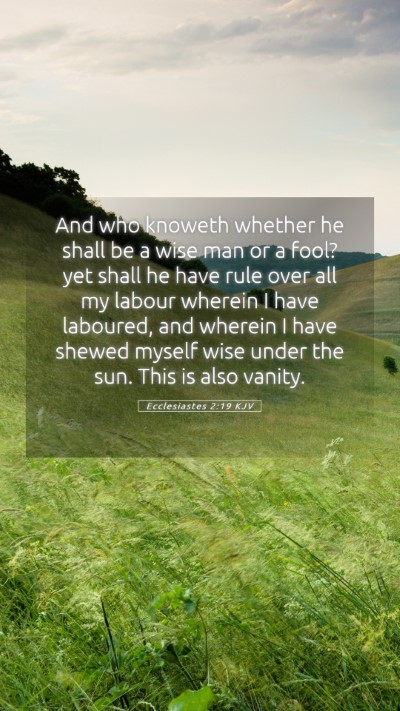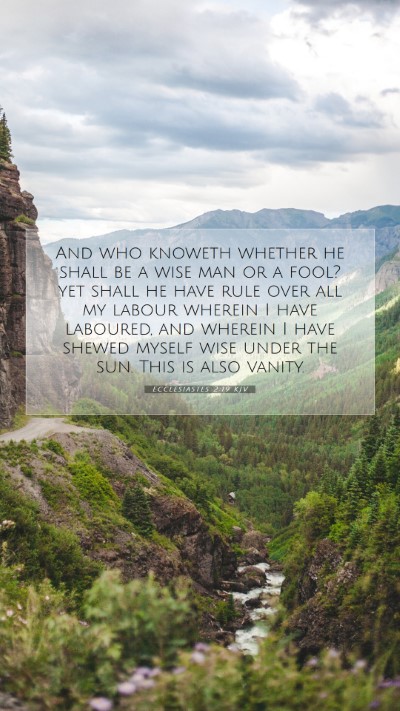Understanding Ecclesiastes 2:19
In Ecclesiastes 2:19, we encounter a reflective and poignant verse that addresses the inherent themes of human effort, legacy, and the uncertainty of life. The verse reads:
"And who knows whether he shall be a wise man or a fool? Yet shall he have rule over all my labor wherein I have labored, and wherein I have showed myself wise under the sun. This is also vanity."
Bible Verse Meanings
This verse raises critical questions regarding the futility of labor and the legacies we leave behind. The insights from Matthew Henry, Albert Barnes, and Adam Clarke elaborate on the multifaceted meanings of this scripture.
In-Depth Bible Verse Analysis
According to Matthew Henry, this verse highlights the uncertainty of the future. No one can predict who will inherit the fruits of their labor—whether a wise man or a fool. It is a sobering reflection on the transient nature of human achievement and the randomness of life’s outcomes.
Albert Barnes emphasizes the idea that the author of Ecclesiastes grapples with the meaning of existence. The passage suggests that one’s diligent work may end up benefiting someone deemed unworthy or unwise. This reinforces the notion that wisdom and folly ultimately bear no distinction when it comes to the benefits derived from our labor.
Adam Clarke adds to this interpretation by discussing the emotional weight carried by the speaker. The realization that the fruits of one's labor may not be enjoyed by oneself but instead passed to another, often in disregard of their wisdom, creates a deep existential despair. The verse serves as a reminder of the vanity of human pursuits when they are not aligned with divine purpose.
Significance of Ecclesiastes 2:19
The verse illustrates profound truths about mortality and the uncertainties of human life. It prompts readers to reflect on their motivations and the purpose behind their efforts.
- Legacy and its Uncertainty: The fear that one’s work may not yield a lasting or meaningful legacy.
- The Nature of Wisdom: The distinction between wise and foolish living appears trivial in the face of destiny.
- Vanity of Life: Echoes the core sentiment of Ecclesiastes, that many human endeavors are ultimately meaningless.
Application of the Verse
Reflecting on Ecclesiastes 2:19 encourages believers to consider the eternal value of their actions. It invites questions such as:
- What does hard work mean if it benefits someone who may squander it?
- How should we evaluate the legacy we wish to leave behind?
- What is the role of divine providence in our achievements?
Bible Study Insights
For those engaging in Bible study groups or using Bible study tools, this verse can serve as a rich discussion starter. It prompts further study into:
- Ecclesiastes 1:2-3: "Vanity of vanities; all is vanity." A foundational concept in the book.
- Psalm 49:10-11: Reflects on the foolishness of wealth and the fate of the wise and foolish alike.
- Proverbs 27:24: Highlights the transitory nature of possessions.
Final Thoughts
The exploration of Ecclesiastes 2:19 can greatly enhance one’s Bible verse understanding and offer profound Bible verse explanations that connect ancient wisdom with modern life experiences. The insights provided by public domain commentaries not only clarify the text's meaning but also encourage deeper reflection on life’s eternal questions.


